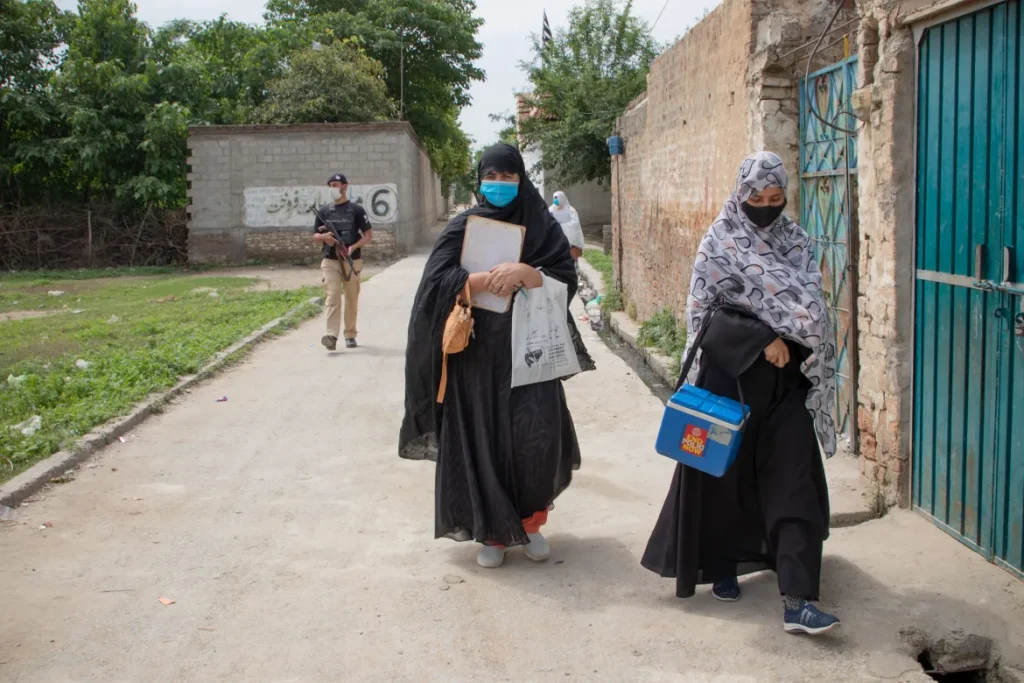In a significant development that has put a halt to Pakistan’s national polio vaccination campaign, health workers have decided to boycott the drive due to unresolved salary disputes. The decision to suspend their participation in the polio eradication program comes at a critical time when efforts to eliminate the disease are already facing challenges.
Salary Disputes Trigger Boycott
Health workers, including vaccinators and other frontline staff, have been demanding fair compensation for their work, which is vital to polio eradication efforts. Despite promises made by the government, the workers have reported delays in salary payments, prompting them to protest and suspend their participation in the campaign.
The boycott has affected several regions of Pakistan, where thousands of children were set to receive polio vaccines. The polio vaccination campaign, which involves teams of health workers going door-to-door, is essential to ensuring that no child is left unvaccinated in the battle against the disease.
The Impact on Pakistan’s Polio Eradication Efforts
Pakistan has made significant strides in reducing the number of polio cases in recent years, but it remains one of the last countries where the disease has not been fully eradicated. The boycott has the potential to set back the country’s progress, as health workers are key to ensuring that every child is reached during the vaccination drives.
The government has already expressed concern over the impact of the boycott, with officials stating that the polio vaccination schedule will be disrupted unless the salary issue is resolved. This could delay the country’s goals of eliminating polio and pose a threat to the hard-earned gains made in recent years.
Health Workers Demand Fair Compensation
The health workers involved in the boycott have stated that the delays in receiving their salaries have caused financial hardships, making it difficult for them to continue working under the current conditions. Many workers argue that their compensation does not reflect the importance and risk associated with their roles in the polio eradication program.
In addition to the salary issue, there are concerns over the lack of adequate support and equipment needed to carry out their duties effectively. Health workers are often required to work in challenging and remote areas, where the threat of violence and health risks is high.
A Call for Immediate Resolution
The polio vaccination campaign is one of the most important health initiatives in Pakistan, aimed at eradicating a disease that has affected generations. Health experts have warned that any disruption in the vaccination process could reverse the progress made, potentially leading to a resurgence of polio cases.
The government has yet to release a concrete plan to address the salary disputes and other concerns raised by the health workers. In response, public health officials have urged both sides to come to a quick resolution, emphasizing that the health and safety of the nation’s children should remain the top priority.
Conclusion: Urgent Need for Resolution
As Pakistan struggles to eradicate polio, the boycott by health workers highlights the broader issues facing the healthcare system in the country. Salary disputes, inadequate support, and lack of resources are just some of the challenges that health workers regularly face, making it crucial for the government to address these concerns in order to ensure the continued success of national health campaigns.
The polio eradication program has been one of Pakistan’s key public health priorities, and any disruption could delay the elimination of this debilitating disease. It is essential for both the government and health workers to come together and resolve the ongoing salary disputes to protect the health of future generations.



Comments (0)
No comments yet. Be the first to comment!
Leave a Comment